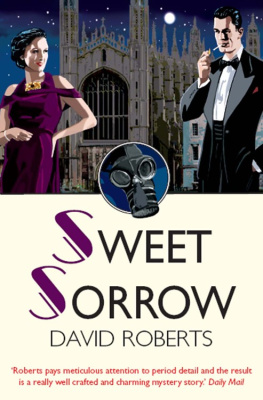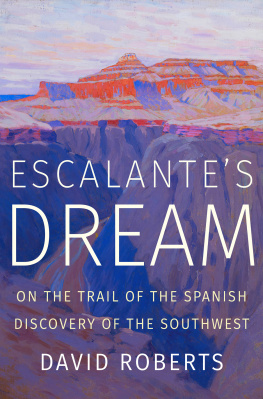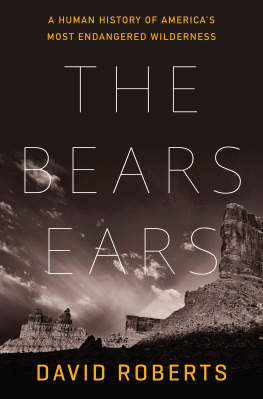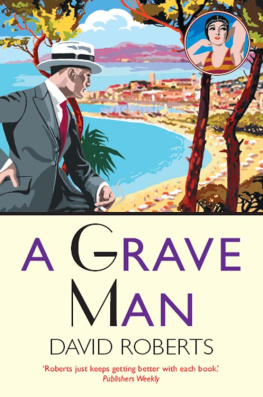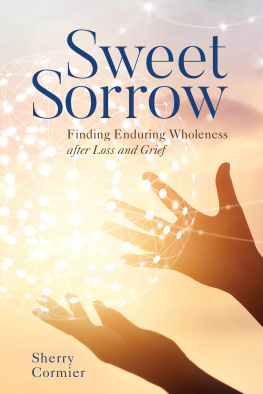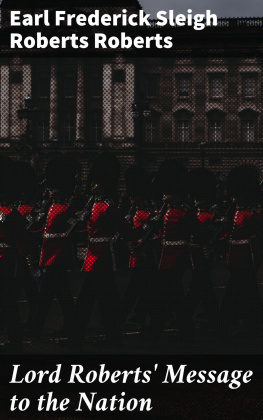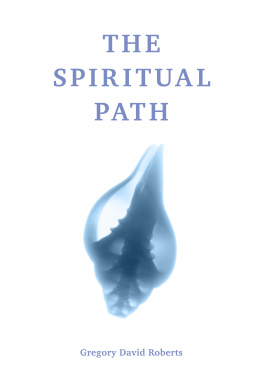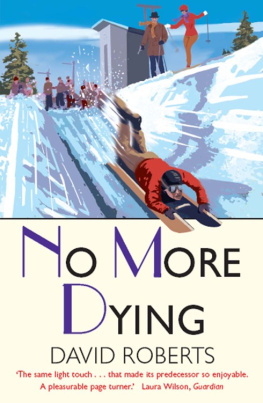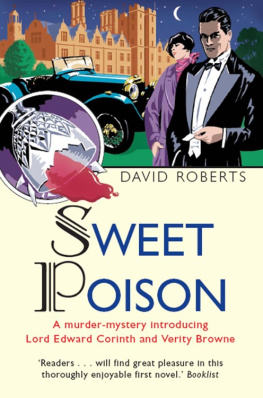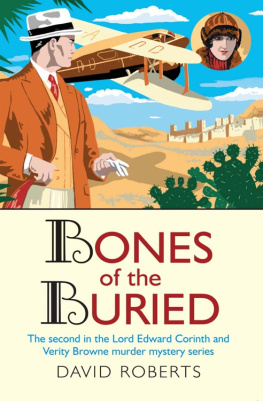David Roberts - Sweet Sorrow
Here you can read online David Roberts - Sweet Sorrow full text of the book (entire story) in english for free. Download pdf and epub, get meaning, cover and reviews about this ebook. year: 2010, publisher: Constable & Robinson Limited, genre: Art. Description of the work, (preface) as well as reviews are available. Best literature library LitArk.com created for fans of good reading and offers a wide selection of genres:
Romance novel
Science fiction
Adventure
Detective
Science
History
Home and family
Prose
Art
Politics
Computer
Non-fiction
Religion
Business
Children
Humor
Choose a favorite category and find really read worthwhile books. Enjoy immersion in the world of imagination, feel the emotions of the characters or learn something new for yourself, make an fascinating discovery.
- Book:Sweet Sorrow
- Author:
- Publisher:Constable & Robinson Limited
- Genre:
- Year:2010
- Rating:3 / 5
- Favourites:Add to favourites
- Your mark:
- 60
- 1
- 2
- 3
- 4
- 5
Sweet Sorrow: summary, description and annotation
We offer to read an annotation, description, summary or preface (depends on what the author of the book "Sweet Sorrow" wrote himself). If you haven't found the necessary information about the book — write in the comments, we will try to find it.
Sweet Sorrow — read online for free the complete book (whole text) full work
Below is the text of the book, divided by pages. System saving the place of the last page read, allows you to conveniently read the book "Sweet Sorrow" online for free, without having to search again every time where you left off. Put a bookmark, and you can go to the page where you finished reading at any time.
Font size:
Interval:
Bookmark:
D AVID R OBERTS worked in publishing for over thirty years. He is married and divides his time between London and Wiltshire.
Praise for David Roberts
Roberts just keeps getting better and better with each book.
Publishers Weekly
Roberts pays meticulous attention to period detail and the result is a really well crafted and charming mystery story.
Daily Mail
This is a witty and meticulous recreation of the class-ridden middle England of the 1930s... a perfect example of golden age mystery traditions with the cobwebs swept away.
Guardian
Roberts has captured brilliantly the light and shade of pre-war Britain under the falling shadow of Nazism. A gripping, richly satisfying whodunit, with finely observed characters, sparkling with insouciance and stinging menace.
Peter James
Also by David Roberts
Sweet Poison
Bones of the Buried
Hollow Crown
Dangerous Sea
The More Deceived
A Grave Man
The Quality of Mercy
Something Wicked
No More Dying

Constable & Robinson Ltd
3 The Lanchesters
162 Fulham Palace Road
London W6 9ER
www.constablerobinson.com
First published by Constable
an imprint of Constable & Robinson Ltd, 2009
This edition published by Robinson,
an imprint of Constable & Robinson Ltd, 2010
Copyright David Roberts 2009
The right of David Roberts to be identified as the author of this work has been asserted by him in accordance with the Copyright, Designs and Patents Act, 1988.
All rights reserved. This book is sold subject to the condition that it shall not, by way of trade or otherwise, be lent, re-sold, hired out or otherwise circulated in any form of binding or cover other than that in which it is published and without a similar condition including this condition being imposed on the subsequent purchaser.
A copy of the British Library Cataloguing in Publication Data is available from the British Library
ISBN: 978-1-84901-378-9
eISBN: 978-1-78033-425-7
Printed and bound in the EU
1 3 5 7 9 10 8 6 4 2
For Jane, first and last
How dost thou, Benedick, the married man?
Shakespeare, Much Ado About Nothing
Parting is such sweet sorrow...
Shakespeare, Romeo and Juliet
August 1939
Prologue
Byron Gates was a poet. As he used to say, with that characteristic chuckle women seemed to find so attractive, what else could he be with a name like that? Ever since he had first read though not understood Childe Harolds Pilgrimage at the age of eleven, he had determined to be a poet and to honour his namesake. As an undergraduate at Oxford, he adopted a poetic personality which he spent what remained of his life refining and perfecting. He began to dress like a poet, modelling his costume on Oscar Wilde and Dante Gabriel Rossetti, developing a taste for silk shirts and bow-ties. He wore a black or purple cape when he ventured out, the colour depending on his mood. He smoked Gitanes through an ivory cigarette holder and, when he could afford it, he sported a buttonhole for preference a white carnation. He wore his hair just an inch or two longer than was thought decent and he had a way of combing it with his fingers when he was in the throes of creation which, he had read, was a mannerism of Tennysons.
His mild eccentricity was indulged by his college, Christ Church, and he was only once ducked in Mercury, the college fountain a passage of arms he wore thereafter like a medal. He was suspected of being a pansy but this was far from the truth.
Although he was a pastoral poet, writing lyrically of the mountains and lakes of his native Cumberland, he was essentially a city man and was never so happy as when he was sipping at his pint in some smoky, stale-aired public house in Fitzrovia. On leaving the university, with a disappointing third, he attempted journalism but the life of a cub reporter did not suit him and, reluctantly, to pay the bills, he took a post in a preparatory school near Marlborough. As his literary reputation grew, he became increasingly impatient at having to teach small boys Latin and English; necessarily ignorant or at least unheeding of the favour he was doing them, they sensed his dislike of them and ragged him unmercifully. It was a minor compensation that the under-matron was pretty and receptive to his overtures.
By the time he was thirty he had published three slim volumes of verse, the first of which had been described as promising, the second as daring and the third as significant, though what it signified the reviewer a drinking companion of his would have been hard put to say. Brief poems extolling natural beauty and platonic love appeared in small magazines with even smaller circulations on a regular basis. He reviewed poetry for the Telegraph and The Listener, for which he also occasionally set the crossword, writing sharp-edged criticism of his elders, praising his friends, particularly his Oxford contemporaries. The Listener brought him into contact with BBC programme makers and he was commissioned to give a series of lectures on how to read poetry, which proved surprisingly popular.
With the approach of war, he wrote a sequence of sonnets expressing his disapproval of violence in any shape or form, bravely declaring to a largely indifferent world that he was a pacifist, like his mentor W.H. Auden. Indeed, he would have gone to America with Auden and his friend Christopher Isherwood to sit out the coming conflict in safety had he been able to wangle an invitation from a respectable American university. As it was, he had reluctantly shut up his house in Flask Walk and left Hampstead for Sussex. Virginia Woolf, the celebrated novelist and an old friend of his, had found him a small cottage close to where she lived in the village of Rodmell just outside Lewes, and to this he decamped with his wife and their two daughters.
Whether it was his name or his fame, if he could be said to be famous, or his pallid good looks and small-boy appeal, he had always enjoyed even at the university considerable success with women. His first wife, to whom he had been unfaithful from the day of their marriage with her sister, as it happened had died five years earlier of cancer, though some unfriendly folk spoke of a broken heart. With Marion dead, he had remarried almost immediately a moderately well-known actress called Mary Brand.
He discovered that the act of marriage was death to romance and immediately began an affair with Frieda Burrowes, an aspiring actress young enough to be his daughter. They had met when she had interviewed him for the BBC and she had signalled her devotion by attending several of his readings, staying on after the usually small audience had dispersed to tell him how profound he was and how affecting his verse. No one ever said that his poetry was memorable it wasnt and he winced when his women chose to quote from poems by his more famous namesake, instead of a line or two from, say, his moving elegy for his dead wife.
Ada, his daughter by his first wife, now aged twelve, was a shy introverted girl, not particularly pretty, as her father used to say to her face, who was left very much on her own. Her stepmother was by no means an uncaring woman but she had her career, mostly on the London stage but occasionally in Hollywood. She, too, had a daughter, Jean, from an earlier marriage, now aged fifteen. Jean was everything Ada was not outgoing, noisy and showing every sign that she would be a beauty. Ada worshipped her stepsister and Jean repaid her devotion with casual friendliness. She had a soft heart and the ugly duckling was so obviously in need of mothering that she did what she could to provide it.
Next pageFont size:
Interval:
Bookmark:
Similar books «Sweet Sorrow»
Look at similar books to Sweet Sorrow. We have selected literature similar in name and meaning in the hope of providing readers with more options to find new, interesting, not yet read works.
Discussion, reviews of the book Sweet Sorrow and just readers' own opinions. Leave your comments, write what you think about the work, its meaning or the main characters. Specify what exactly you liked and what you didn't like, and why you think so.

